


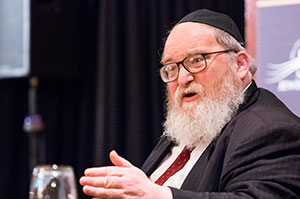
 10:19
10:19
Series: Moment of Wisdom
Rabbi Dr. Yitzchok Breitowitz (71)
 3:49
3:49
Why doesn't Judaism allow cremation?.
Series: Moment of Wisdom
Rabbi Dr. Yitzchok Breitowitz (71)
 3:24
3:24
Why do we need a Messiah?.
Series: Moment of Wisdom
Rabbi Dr. Yitzchok Breitowitz (71)
 4:34
4:34
Why does Judaism forbids tattoos?.
Series: Moment of Wisdom
Rabbi Dr. Yitzchok Breitowitz (71)
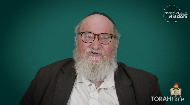 7:51
7:51
Where did the teaching of Kabbalah come from?.
Series: Moment of Wisdom
Rabbi Dr. Yitzchok Breitowitz (71)
 3:42
3:42
Series: Moment of Wisdom
Rabbi Dr. Yitzchok Breitowitz (71)
 5:57
5:57
Series: Moment of Wisdom
Rabbi Dr. Yitzchok Breitowitz (71)
 3:30
3:30
Rabbi Dr. Yitzchok Breitowitz (71)
 4:10
4:10
Series: Moment of Wisdom
Rabbi Dr. Yitzchok Breitowitz (71)
 5:42
5:42
Series: Moment of Wisdom
Rabbi Dr. Yitzchok Breitowitz (71)
 6:48
6:48
Was Jacob polygamous? And is polygamy a good thing?.
Series: Moment of Wisdom
Rabbi Dr. Yitzchok Breitowitz (71)
 4:08
4:08
Series: Moment of Wisdom
Rabbi Dr. Yitzchok Breitowitz (71)
 5:42
5:42
Series: Moment of Wisdom
Rabbi Dr. Yitzchok Breitowitz (71)
 3:42
3:42
Series: Moment of Wisdom
Rabbi Dr. Yitzchok Breitowitz (71)
 5:41
5:41
Rabbi Dr. Yitzchok Breitowitz (71)
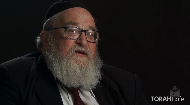 3:28
3:28
Rabbi Dr. Yitzchok Breitowitz (71)
 11:43
11:43
Rabbi Dr. Yitzchok Breitowitz (71)
 6:50
6:50
Rabbi Dr. Yitzchok Breitowitz (71)
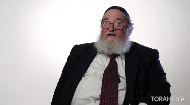 4:57
4:57
Rabbi Dr. Yitzchok Breitowitz (71)
 2:58
2:58
Rabbi Dr. Yitzchok Breitowitz (71)
 4:48
4:48
Rabbi Dr. Yitzchok Breitowitz (71)
 3:19
3:19
Rabbi Dr. Yitzchok Breitowitz (71)
 47:22
47:22
Our prayers lead us deep inside as a way of connecting with an infinitely spiritual cosmos. Might there be a place within us akin to the Holy Temple? If so, how may we find it? This lecture was delivered at the 14th annual National Jewish Retreat. For more information and to register for the next retreat, visit: Jretreat.com.
Rabbi Dr. Yitzchok Breitowitz (71)
 58:55
58:55
In this “tell- all” age, what becomes of our status as private citizens? Attorneys, doctors, and others are restricted from sharing personal information, but at what social cost? How does Jewish law adjudicate this sticky issue? This lecture was delivered at the 14th annual National Jewish Retreat
Rabbi Dr. Yitzchok Breitowitz (71)
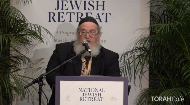 46:49
46:49
Are we merely the sum of our parts? How does Jewish law consider the ethical and legal issues posed by recent developments in biological technology?? This lecture was delivered at the 14th annual National Jewish Retreat. For more information and to register for the next retreat, visit: Jretreat.com.
Rabbi Dr. Yitzchok Breitowitz (71)
 47:05
47:05
This panel was featured at the 14th annual National Jewish Retreat. For more information and to register for the next retreat, visit: Jretreat.com.
Series: Crossfire!
Rabbi Dr. Edward Reichman (51)
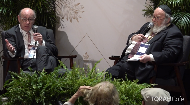 37:34
37:34
A conversation between two great Jewish minds both world renonwed in their fields. Kenneth Feinberg and Rabbi Yitzchak Breitowitz in the topics of compensation, ethics, and guiding light for leading a meaningful life. This conversation was featured at the 14th annual National Jewish Retreat. For more information and to register for the next retreat, visit: Jretreat.com.
Mr. Kenneth Feinberg (5)
 3:43
3:43
Rabbi Dr. Yitzchok Breitowitz (71)
 4:41
4:41
Rabbi Dr. Yitzchok Breitowitz (71)
 3:39
3:39
Does Judaism believe in animal rights?.
Rabbi Dr. Yitzchok Breitowitz (71)
 4:48
4:48
Rabbi Dr. Yitzchok Breitowitz (71)
 5:42
5:42
If the Torah is the ultimate truth that comes from G-d, how can there be difference of opinions on Halachic rulings?.
Rabbi Dr. Yitzchok Breitowitz (71)
 2:30
2:30
Rabbi Dr. Yitzchok Breitowitz (71)
 2:15
2:15
G-d created everything. Who created G-d?.
Rabbi Dr. Yitzchok Breitowitz (71)
 2:34
2:34
Rabbi Dr. Yitzchok Breitowitz (71)
 1:58
1:58
Rabbi Dr. Yitzchok Breitowitz (71)
 2:16
2:16
Juadaism requires that we marry only Jews. Is that racist?.
Rabbi Dr. Yitzchok Breitowitz (71)
 3:14
3:14
Judaism boiled down to three beliefs.
Rabbi Dr. Yitzchok Breitowitz (71)
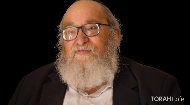 5:40
5:40
Rabbi Dr. Yitzchok Breitowitz (71)
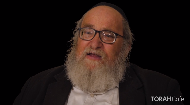 2:04
2:04
The reason G-d created us.
Rabbi Dr. Yitzchok Breitowitz (71)
 5:33
5:33
While many adopt this “brand name” and identify their activities with it, what does “Tikun Olam” actually mean? And is it being misused?.
Rabbi Dr. Yitzchok Breitowitz (71)
 3:19
3:19
Marriage = giving.
Rabbi Dr. Yitzchok Breitowitz (71)
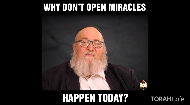 3:21
3:21
Rabbi Dr. Yitzchok Breitowitz (71)
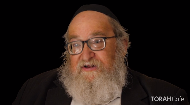 2:36
2:36
Are you too insignificant to really change anything? Is there too much darkness for the light to emerge and overpower it?.
Rabbi Dr. Yitzchok Breitowitz (71)
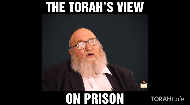 2:35
2:35
Series: JLI Facebook interviews
Rabbi Dr. Yitzchok Breitowitz (71)
 1:09
1:09
Series: JLI Facebook interviews
Rabbi Dr. Yitzchok Breitowitz (71)
 2:54
2:54
Series: JLI Facebook interviews
Rabbi Dr. Yitzchok Breitowitz (71)
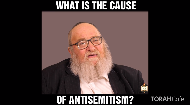 2:55
2:55
Series: JLI Facebook interviews
Rabbi Dr. Yitzchok Breitowitz (71)
 1:56
1:56
Series: JLI Facebook interviews
Rabbi Dr. Yitzchok Breitowitz (71)
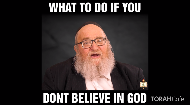 1:35
1:35
Series: JLI Facebook interviews
Rabbi Dr. Yitzchok Breitowitz (71)
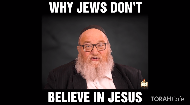 1:45
1:45
Series: JLI Facebook interviews
Rabbi Dr. Yitzchok Breitowitz (71)
 1:59
1:59
Series: JLI Facebook interviews
Rabbi Dr. Yitzchok Breitowitz (71)
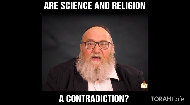 2:08
2:08
Series: JLI Facebook interviews
Rabbi Dr. Yitzchok Breitowitz (71)
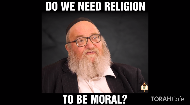 2:43
2:43
Series: JLI Facebook interviews
Rabbi Dr. Yitzchok Breitowitz (71)
 2:07
2:07
Series: JLI Facebook interviews
Rabbi Dr. Yitzchok Breitowitz (71)
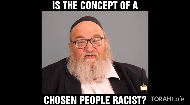 2:17
2:17
Series: JLI Facebook interviews
Rabbi Dr. Yitzchok Breitowitz (71)
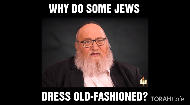 2:34
2:34
Series: JLI Facebook interviews
Rabbi Dr. Yitzchok Breitowitz (71)
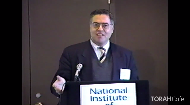 52:32
52:32
What are the practiced guidlines for doctors to abide by, and where do they come from? This presentation took place in 1997 at the International Conference on Judaism and Contemporary Medicine. The video recording is courtesy of Dr. Michael-Moshe Akerman M.D. who is the director of the conference. This presentation discusses complex medical issues
Dr. Lawrence Resnick (1)
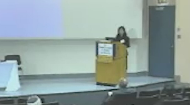 1:05:48
1:05:48
When IVF is used to create a pregnancy, who is the real mother? How do we ensure that the donated sperm doesn’t get mixed up with someone else’s? And is donating sperm always permitted, or does it violate the prohibition of “Motzei Zera L’Vatalah”? This is a vintage video and is being shared here for its historical value and its content, not for the quality of its video
Dr. Susan Lobel (2)
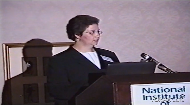 1:13:05
1:13:05
What are the ethical problems with human cloning? Is a cloned person unique or just a copy of someone else? Is it even considered a human being? May we use cloning to enhance a person’s physical capabilities? Are we “playing God” by doing gene therapy? This is a vintage video and is being shared here for its historical value and its content, not for the quality of its video
Dr. Miriam H. Feuerman (2)
 2:20
2:20
Rabbi Dr. Yitzchok Breitowitz (71)
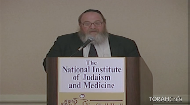 1:15:53
1:15:53
Is the current system of malpractice lawsuits fair? Does it even help patients? Are there reforms or laws that can be introduced to reduce the cost of being sued? This is a vintage video and is being shared here for its historical value and its content, not for the quality of its video
Assemblyman Richard N. Gottfried (1)
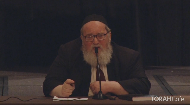 55:30
55:30
Death with dignity has become one of the catchphrases of 21st century values and an attractive possibility. However, with medical treatment costs rising and limited resources, the right to die has increasingly become a duty to get out of the way
Rabbi Dr. Yitzchok Breitowitz (71)
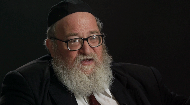 4:22
4:22
Rabbi Dr. Yitzchak Breitowitz discusses prayer and why it is an integral part of Jewish belief.
Series: The Jewish Course of Why
Rabbi Dr. Yitzchok Breitowitz (71)
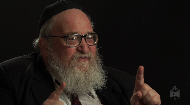 8:14
8:14
Why are there still Jews around, after all every nation in the world has tried to destroy us, either physically or spiritually?.
Series: The Jewish Course of Why
Rabbi Dr. Yitzchok Breitowitz (71)
 8:43
8:43
It really can’t be important to G-d whether you keep this detail or that detail, after all there are so many details that human beings inevitably will fail….
Series: The Jewish Course of Why
Rabbi Dr. Yitzchok Breitowitz (71)
 46:57
46:57
To save a life is one of the greatest mitzvot that one can perform. At the same time, however, it is axiomatic that we cannot save a life by ending another. The time of death, then, becomes a subject of utmost importance
Rabbi Dr. Yitzchok Breitowitz (71)
 53:09
53:09
The panelists will answer questions and address medically related ethical quandaries submitted by participants. No question is too basic or too complex. To see our other "Crossfire!" videos, click here. This panel took place at the 10th annual National Jewish Retreat. For more information and to register for the next retreat, visit: Jretreat.com.
Series: Crossfire!
Rabbi Dr. Edward Reichman (51)
 54:56
54:56
Bio-technologies, like embryonic stem cell research and cloning, offer new, exciting possibilities for curing the toughest medical conditions. They also raise serious ethical questions
Rabbi Dr. Yitzchok Breitowitz (71)
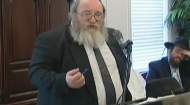 31:29
31:29
Rabbi Dr. Yitzchok Breitowitz (71)
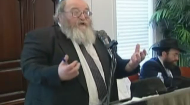 6:19
6:19
In this look behind the scenes at a dark period in Jewish History, Rabbi Dr. Breitowitz speaks about the reasons behind the destruction of the first Temple in Jerusalem. The Temple was destroyed not, as you may think, because the Jews did not observe Torah and Mitzvot; but, rather, because the Jews at the time treated Torah as secondary, not as the primary focus in their lives
Rabbi Dr. Yitzchok Breitowitz (71)